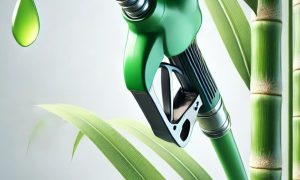China’s new energy industry benefits Malaysia’s green transformation

In Kuala Ketil, Malaysia, a 260-acre, 50 MW photovoltaic power station, operated by Edra Power Holdings and built by China Energy Engineering, provides clean energy. Chinese technology aids Malaysia’s green transformation, with employees trained in China. More Chinese-built photovoltaic plants are emerging in Malaysia. Hydrogen-powered trams, developed by CRRC, will start in Kuching by 2025. Chinese automakers like GWM and BYD boost Malaysia’s EV industry and job market.
XINHUA – In Kuala Ketil, a small town in southern Kedah state, Malaysia, stands a 260-acre photovoltaic power station, with tens of thousands of photovoltaic panels installed. Seen from a distance, they look like undulating waves glittering in the sun.
Operated by Edra Power Holdings, a subsidiary of China General Nuclear Power Corporation, the power plant was built by China Energy Engineering Group Tianjin Electric Power Construction Co, Ltd, with an installed capacity of 50 mega watts. It began commercial operation in 2019 and provides clean energy for local economic development and people’s livelihood.
Following the global trend of a low-carbon economy and sustainable development, Malaysia has been working hard in recent years to reduce its dependence on fossil fuels and increase the use of renewable energy in its power generation.
As a global leader in the photovoltaic industry, China has provided not only equipment but also technology for Malaysia’s green transformation. Noor Azie Syamira, who is responsible for administration at the power station, told Xinhua that the photovoltaic panels, inverters and transformers used are all Chinese products, and Chinese experts also came to provide guidance during the construction of the power station.
In order to better operate and maintain the power plant, Edra Power Holdings sent employees to China for training, and Viknesparan Kadaply was one of them. “In China, we learned how to use the control system, and also visited a photovoltaic power plant on site and learned how to operate and maintain it. The training gave me more confidence to work at this power station,” he said.
In recent years, there has been an increasing number of photovoltaic power stations built by Chinese companies in Malaysia: a photovoltaic power plant using solar trackers built by China Energy Engineering Group Jiangsu Power Design Institute Co, Ltd in Sabah has already been connected to the grid, while a floating photovoltaic power station in Sarawak has started construction and is expected to be completed in October this year.
Malaysia has also emphasised the development of hydrogen, bioenergy, carbon capture, utilisation and storage.
Relying on the technologies in these fields, Chinese companies have achieved fruitful cooperation with Malaysia in energy storage power plants, hydrogen production and storage, and hydrogen-powered smart trams.
The urban transportation services in Kuching, capital of Sarawak in Malaysia, will use hydrogen-powered smart trams independently developed and manufactured by CRRC Zhuzhou Electric Locomotive Research Institute Co, Ltd. The first tram was delivered and began road testing in September 2023.
Sarawak Premier Abang Johari said that the trams are highly consistent with Kuching’s urban development needs, and that 38 trams have been ordered from CRRC, which will cover three lines in Kuching. The project is expected to start operation in 2025.
The Malaysian government also encourages the development of the electric vehicle industry to help achieve net-zero emissions target.
Chinese automakers, such as Great Wall Motor (GWM) and BYD, have launched their electric models, or prepared for local production and assembly, which not only brings new driving experience to Malaysian people, but also creates jobs.
The Automotive High Technology Valley project in Tanjong Malim of Perak state, jointly built by China’s Geely and its Malaysian partner, will focus on research and development, high-skilled talent training, and supply chain development to enhance the competitiveness of Malaysia’s automotive industry.
President Low Kian Chuan of the Associated Chinese Chambers of Commerce and Industry of Malaysia said that China is not only the world’s largest electric vehicle market, but also a technological leader in this field.
Source Link: https://borneobulletin.com.bn/chinas-new-energy-industry-benefits-malaysias-green-transformation/














